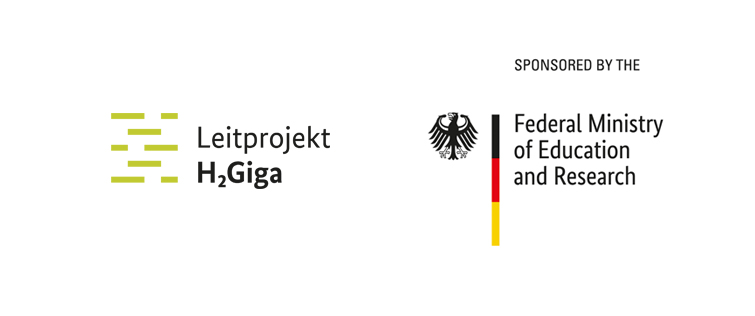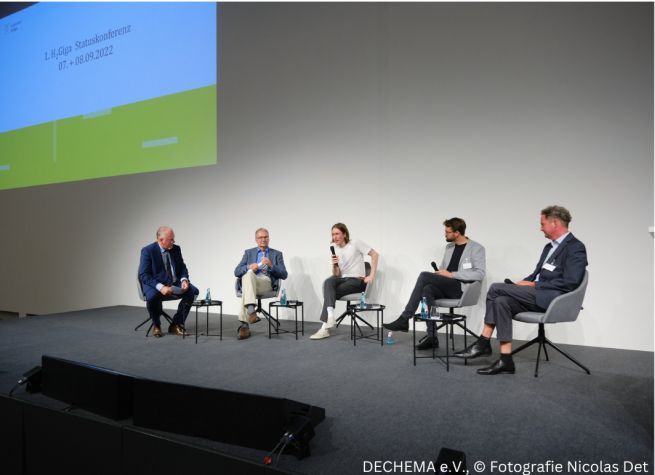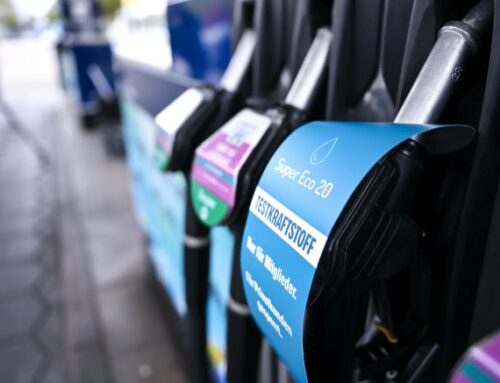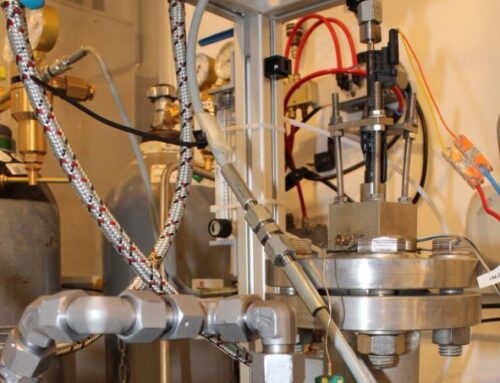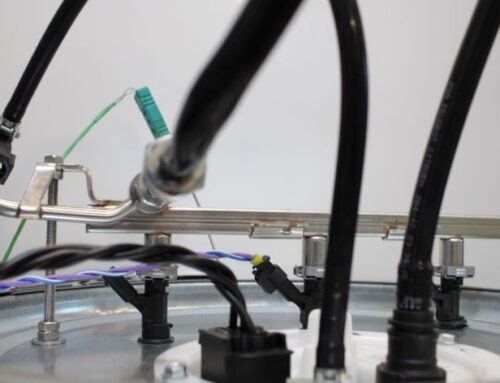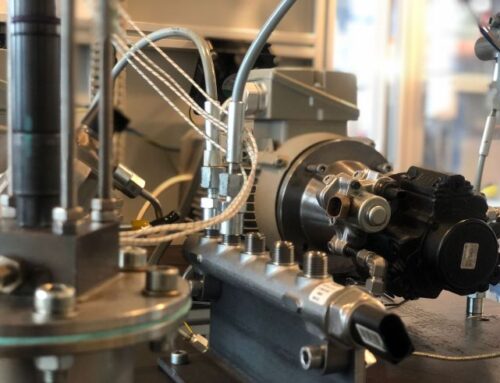First milestones reached in Fluid Condition Monitoring joint project
08 November 2022 – At the status conference of hydrogen flagship project H2Giga, the project partners Tec4Fuels GmbH and DECHEMA Research Institute presented their milestones of joint project “Fluid Condition Monitoring (FluCoM)”, achieved after eight months in mid-September 2022. FluCoM is part of the German Federal Ministry of Education and Research’s flagship hydrogen project H2Giga, in which more than 130 companies and research institutions are researching and developing processes to produce green hydrogen on an industrial scale.
The joint project FluCoM is concerned with monitoring the quality and purifying the process water required in electrolysis. H2Giga focuses on the production of green hydrogen by electrolysis. During the operation of electrolyzers, impurities can get into the process water, which can lead to forced degradation, with consequences such as increasing energy demand and even failure of the entire system.
Tec4Fuels has built a test rig to study process water qualities and contaminants from electrolyzer operation and their impact on the effectiveness of purification systems. The hardware-in-the-loop (HiL) test rig contains the main components for purifying process water, such as water tank, ion exchanger or electrode ionization (EDI) cells, which are interconnected in a water circuit. This enables the analysis of ultrapure water spiked with specified contaminants as well as water samples from the ongoing operation of electrolyzers. The water flows in a circuit through the components of the test rig. Contaminated water is purified by the EDI cells. The electrical conductivity of process water serves as a control variable and is subject to permanent monitoring.
Quality of process water as a component of H2Giga
For the analysis of water samples, the DECHEMA Research Institute has commissioned a new Inductively Coupled Plasma – Optical Emission Spectrometry (ICP-OES). The ICP-OES makes it possible to detect low concentrations of metal ions in aqueous solutions. If necessary, further tests of analytical methods are also planned. The HiL test rig is designed in such a way that different analytical methods and sensors can be integrated. The project also aims to develop a concept for an online sensor system for determining water quality.
In the coming months, Tec4Fuels and DECHEMA Research Institute, in coordination with the electrolyzer manufacturers in lead project H2Giga, plan to determine further contaminants of the water, conduct investigations on the test rig with water samples from the field and from pilot plants, and test further analytical methods for their suitability.
About the hydrogen lead projects
The hydrogen lead projects form the largest research initiative to date of the German Federal Ministry of Education and Research (BMBF) on the topic of energy transition. In the industry-led flagship projects, industry and science are jointly developing solutions for the German hydrogen economy: series production of large-scale electrolysers (H2Giga), production of hydrogen at sea (H2Mare), technologies for the transport of hydrogen (TransHyDE).
